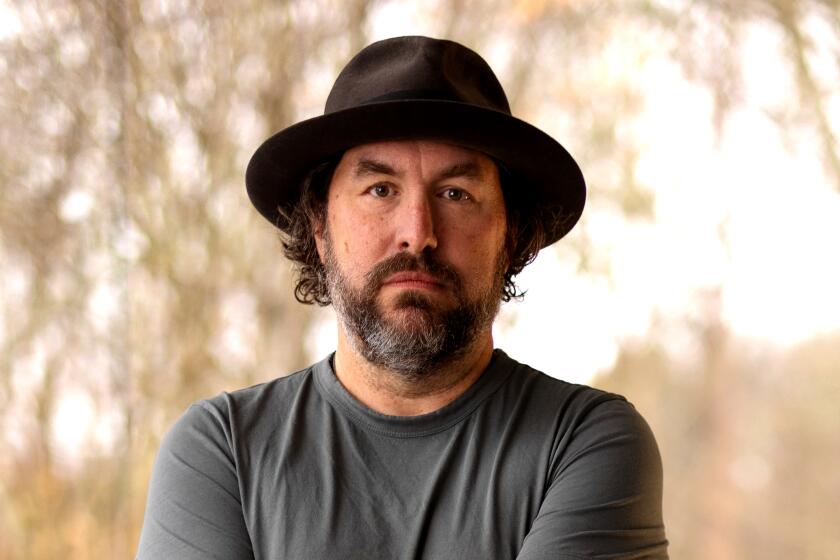Why William Bennett doesn’t think you need to go to college
What’s more egregious than Rick Santorum, a presidential candidate with not just one but two graduate degrees (an MBA and a JD), calling President Obama a “snob” for wanting “everybody in America to go to college”?
How about this: A former U.S. secretary of education, William J. Bennett, making a similar argument in his new book “Is College Worth It?” (Thomas Nelson: 272 pp., $22.99), co-written with David Wilezol.
Talk about a double standard: Like Santorum, Bennett has two advanced degrees (a PhD in philosophy from the University of Texas, Austin and a JD from Harvard), but he insists that college shouldn’t be for everyone, that there is nothing wrong with good, old-fashioned work.
“No matter how high tech the economy becomes, elevators will get stuck, toilets will get clogged, and power lines will need repair,” he and Wilezol write. “Given the dismal state of the economy and the growing skills gap, it’s time we redeem these jobs as meaningful, valuable professions worthy of all Americans.”
On the one hand, it’s tough to disagree with that, the notion that there is nobility, necessity, in every job. On the other, this illustrates one of the many contradictions in this poorly reasoned, poorly researched book: that education should be more than just vocational.
To be fair, that’s a point Bennett and Wilezol acknowledge, quoting William James’ essay “The Social Value of the College-Bred”: “The best claim that a college education can possibly make on your respect, the best thing that it can aspire to accomplish for you, is this: that it should help you to know a good man when you see him.”
James is talking about culture, about the notion of a common heritage, what Bennett and Wilezol refer to as “the sources of learning that have formed the basis for Western standards of truth, beauty, and conduct.” But as “Is College Worth It?” makes clear, they’re less interested in celebrating these virtues than in using them to push a series of tired talking points about government funding, left-wing academics and the campus as a landscape of political correctness run amok.
“As political and cultural liberalism came to dominate the American university in the 1970s,” the authors fulminate, “so the instructional approach suffered. Liberal scholars, informed by a relativistic worldview, increasingly reinterpreted ‘texts’ from any number of vantage points, thus entrenching a hermeneutic in the universities that can broadly be defined as postmodern. This largely meant approaching texts from the perspectives of historically underrepresented identity groups like feminists, nonwhite minority groups, and homosexuals. As a consequence of adopting these views, the reputation of the Great Books suffered, as many liberal scholars dismissed the output of dead white males as variously sexist, elitist, imperialist, bourgeois, ethnocentric, racist, selfish, and solipsistic. If the greats weren’t discarded entirely, liberal academics developed counternarratives to describe the great works. In this way, colleges pay lip service to the tradition of the great disciplines and great thinkers by teaching them in the classroom, but do so in a way that emphasizes idiosyncratic and ideologically contorted understandings of the material.”
Look: I teach, and if one of my students were to turn in such a pack of unsupported generalities, I’d send it back and demand some attribution, some citations, some basic facts.
This, however, is Bennett and Wilezol’s method, to set up straw men (the government, liberals, the tenure system) while waging what is essentially reverse class warfare, in which higher education ought to be reserved for those who “need” it, as opposed to everyone.
They frame this in the language of populism (remember that line about “meaningful, valuable professions”?), even as they overlook what remains the key function of a college education: to instill a sense of inquiry. The goal is not -- has never been -- to impose some kind of top-down authority on one’s students, but rather to encourage conversation, to raise questions, to teach them how to think.
That’s a worthwhile goal no matter what you end up doing for a living, but it has little place in Bennett and Wilezol’s ideology. Rather, “Is College Worth It?” offers us the opposite: not thought or inquiry but the worst sort of sophistry, the kind that seeks to justify exclusion by telling us that it is for our own good.
ALSO:
Join our chat with Ken Ilgunas, the student in the van by the river
Tech-savvy parents prefer print over e-books for kids, PEW reports
More to Read
Sign up for our Book Club newsletter
Get the latest news, events and more from the Los Angeles Times Book Club, and help us get L.A. reading and talking.
You may occasionally receive promotional content from the Los Angeles Times.









